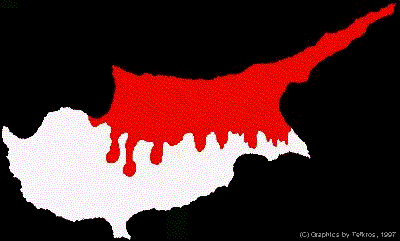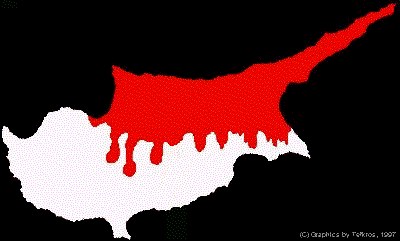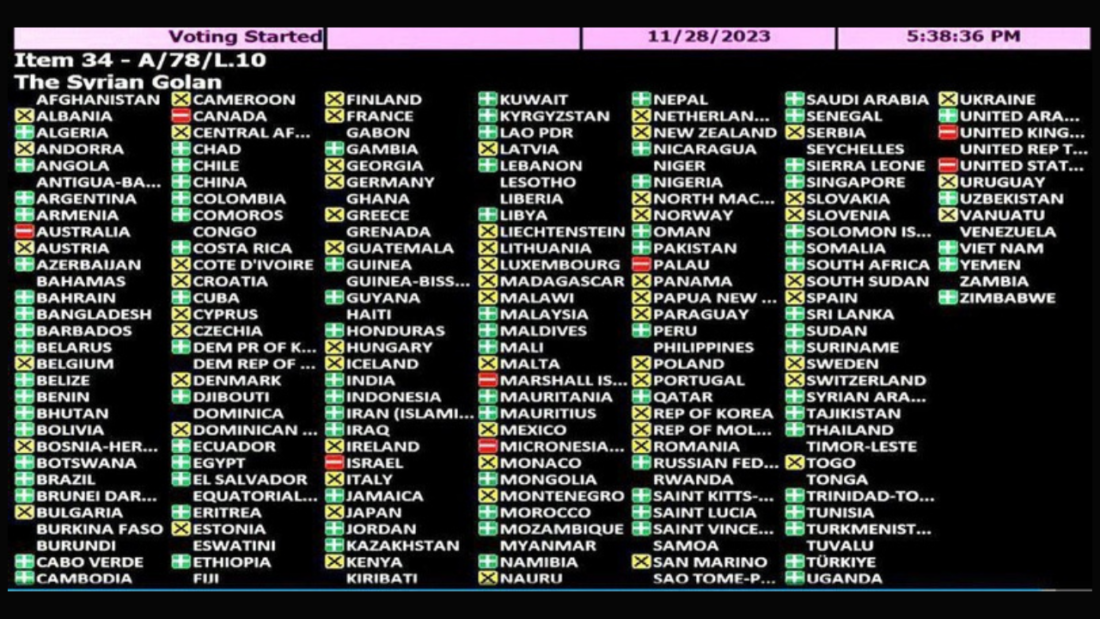
CYPRUS: a country still divided
Cyprus stands at a strategic geopolitical position – at the crossroads of Africa, Asia and Europe, an element which constituted a permanent threat for its territory and gave rise since time immemorial to multiple foreign settlements, interventions and occupations at the expense of the freedom of its people.
Hittites, Phoenicians, Assyrians, Egyptians, Persians, Romans, Byzantines, Franks and Venetians amongst others. In 1571 the Ottoman Empire conquered Cyprus until 1878 when it was put under British colonial rule. NATO imperialism always saw Cyprus as a strategic point to serve its general strategic plans in the wider region.
1878 – 1960
The beginning of the 20th century finds Cyprus a British colony. The tyranny of the British colonials completed the repression exercised upon the working class by the local bourgeois class. The Communist Party of Cyprus was founded in 1926 aiming at the struggle against exploitation and the liberation from British colonialism through a broad united front of anti-colonial forces including the Turkish Cypriots. In 1941 AKEL –the successor or CPC – was founded to lead the mass political struggle for freedom.
The anti-colonial struggle was growing with time and more and more Cypriots were involved everyday. During these years Cypriots fought for their independence but at the same time fought by the side of the Spanish people in defence of democracy and joined the fight of humanity against Hitler’s fascism, realising that these struggles were at the same time part of their struggle for the right of self determination.
The ten years that followed, between 1945-1955, were years of an intense and hard anti-imperialist and anti-colonialist struggle which demanded the right to self-determination and further political freedoms for our people. At the same time these were years of intense class struggle.
In 1955 the anti-colonial struggle took the form of the armed struggle. AKEL was in favour of mass political struggle. Despite the heroic self-sacrifice of many young Cypriots, the armed struggle lead the Cyprus problem to dangerous deadlocks. These deadlocks were exploited by the British imperialism in its continuous effort to impose a solution serving its own interests.
Under the threat of partition or even the complete occupation of Cyprus by Turkey, the British imposed the Zurich-London agreements. Agreements that left on the island foreign troops and bases and imposed a constitution that did not contribute to the normal co-existence of the two communities.
1960
The Republic of Cyprus was born in August 1960, facing from the very beginning, huge difficulties and unfavourable conditions.
Ankara’s expansionist aims and NATO’s plans to convert Cyprus into an unsinkable air-carrier of the alliance in the Eastern Mediterranean, threatened the very existence of the independent Republic of Cyprus.
Within the country, significant forces both within the Greek Cypriot and the Turkish Cypriot communities did not believe in independence. They saw it as a transitional stage, the ones towards ENOSIS (union with Greece), the others towards partition. Following the intercommunal conflict of December 1963, Cyprus engaged in a struggle of survival.
The years 1964 – 1974 constituted a decade of struggle for the defence of the independence and unity of the Republic of Cyprus. The failure of Cyprus’s enemies to abolish the independent Republic of Cyprus, led foreign decision-making centres to a policy of undermining Cyprus from within. In these plans the Athens junta and the local extreme right-wing were proven to be willing collaborators. Conspiracies took place for the violent overthrow of Makarios and the fascist illegal organisation EOKA B appeared waging an orgy of terrorism with the assassinations of democratic citizens, abductions, bomb attacks on police stations etc.
1974
Unfortunately, when under the orders of the Greek junta and the transatlantic decision-making centres the treacherous tanks moved, on 15 July 1974, the heroic resistance of the democratic forces was not in a position to stop them.
The fascist coup was followed by the Turkish invasion on 20 July 1974. Until today, 40,000 Turkish troops occupy 37% of the territory of Cyprus and turned 170,000 that is 1/3 of the population into refugees in their own country. Around 40,000 Turkish Cypriots were forced by Turkey to move to the northern part of the island, thus completing the segregation. Fundamental freedoms and human rights are being violated. An attempt is carried out to alter the demographic structure of the island by the mass settlement of the occupied areas by mainland Turks. It is now estimated that the number of settlers exceeds by far the number of Turkish Cypriots living in the occupied areas. At the same time the illegal usurpation of Greek Cypriots properties in the occupied areas makes the property issue one of the burning and most perplexed problems of any solution sought.
The 1963-64 inter-communal conflict and the 1974 Turkish invasion left behind about 2000 missing Greek Cypriots and Turkish Cypriots. In the past three years a breakthrough was achieved by the Committee on the Missing Persons and the two communities are working together in collecting information on the fate of the missing persons and proceed with exhumations and DNA identification. This is gradually allowing the families to lay their beloved persons to rest and heal a big wound.
AFTER 1974
Since 1974, the UN has been trying to facilitate the solution of the Cyprus problem. Numerous UN Resolutions call for withdrawal of Turkish troops and settlers and for the restoration of the sovereignty and territorial integrity of the Republic of Cyprus as well as the respect of the inalienable rights of refugees to return to their homes and enjoy peacefully their properties. The Makarios – Denktash High Level Agreement of 1977 and the Kyprianou – Denktash High Level Agreement of 1979, the then leaders of the two communities, provide for the transformation of the Republic of Cyprus from a unitary state to a federal one with two regions, each one to be administered by the respect community. The same Agreements provide for the demilitarisation of the Republic of Cyprus and the respect of fundamental freedoms and human rights of all Cypriots. Nevertheless, these Agreements have never been implemented because of the intransigence of Turkey and its insistence on a solution that will preserve its own advantages and privileges over the island gained through invasion and occupation.
2008-2013 Demetris Christofias and AKEL at the Presidency of the Republic of Cyprus
As a result of the policies and initiatives undertaken by the President of the Republic Cyprus com. Demetris Christofias, the beginning of substantive negotiations, between the leaders of the two communities of Cyprus on the 3rd of September 2008, was made possible. The negotiations between Demetris Christofias and the ex-Turkishcypriot leader Mahmet Ali Talat lasted for almost 1 and a half year. During this period significant convergences had been achieved on certain issues like Power Sharing and Governance, Economy and EU Affairs. Nevertheless significant disagreements remained on serious aspects, especially in the Chapters that are related to the Security and Guarantees, the Territorial, the settlers and the Properties issues.
A very negative development has occurred in April 2010 with the election of the extreme-right winged and nationalist politician Dervish Eroglu in the leadership of the Turkishcypriot community. His election has created even more obstacles in the efforts for finding a solution in the Cyprus Problem as his positions were always and still remain in favour of a two states solution or partition.
2013 The election of the right wing Nicos Anastasiades at the Presidency of Cyprus in February 2013 brings the path for a solution in a new phase. His position for restarting the negotiations from a zero basis and not from the point of convergences that had been achieved from the previous negotiations process seems to be very problematic for the success of the new phase of negotiations. Also the rejection of important convergences as the issue of the cross-voting shall also work negatively. Finally, his positions for a loose federation and decentralised federal government do not promise the achievement of a viable and effective solution.
As AKEL we believe that all efforts should be concentrated for reaching a solution as soon as possible. Talking into account the negative experience of the recent past, suffocating timetables and arbitration should be avoided and the procedure should remain of Cypriot ownership. Nevertheless, in order to reach a solution, this can only be achieved if the Turkish and Turkish Cypriot side will show in practice their readiness for a decent compromise in the negotiation table, thus remaining in the agreed framework of the solution as defined by the two leaders before the commencement of the negotiation procedure.
The discovery of natural gas in the sea territory of Cyprus can work supportingly towards a solution under a prudent management. The t/c community may benefit from this development while the g/c side acknowledges that stability is essential for the unhindered exploitation of the natural wealth.
The main aim of AKEL is to reinstate the unity and territorial integrity of Cyprus. We are struggling for a peaceful solution of the Cyprus problem within the framework of the United Nations through substantiative bicommunal talks.
The solution of the Cyprus problem should include:
- The withdrawal of the Turkish occupation forces and settlers;
- The restoration of the unity, territorial integrity and sovereignty of the Republic of Cyprus;
- The respect of the independence of Cyprus;
- Respect and restoration of the human rights and freedoms of all Cypriots, including the right of all refugees to return to their homes and properties.
The solution must be sought within the UN framework, on the basis of the UN resolutions on Cyprus and of the high-level agreements, which provide for a demilitarised, federal state with a single sovereignty, international personality and citizenship.
We consider rapprochement between the Greek Cypriots and the Turkish Cypriots an indispensable precondition both for finding a solution and for the viability of the solution. We shall continue, despite the obstacles to fight for friendship and cooperation between the two communities and among all citizens of our small country – Greek Cypriots, Turkish Cypriots, Maronites, Armenians and Latins.
The upcoming months will be critical for Cyprus. Everyone who is in position to exert influence on the Turkish side to comply with its obligations vis-a-vis the EU and Cyprus -must do so. Solidarity of our friends is now necessary more than ever before in our struggle for reunification of our country and our people.
International Department of AKEL
September 2013





